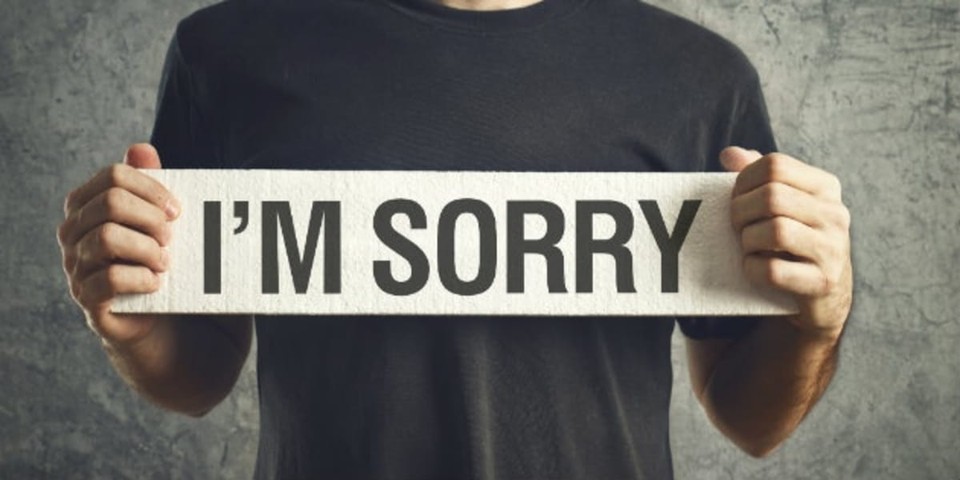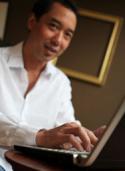Taking Responsibility for Yourself

Over the past couple of years, I have been troubled, and at times perturbed, at the degradation of a lot of things in our society—family values, public trust, integrity, etc. However, my current soapbox theme has to be personal responsibility, or seemingly the lack of it.
We are constantly exposed to the negative exploits of public figures, celebrities and even “common folks” through the media. As a result of this barrage of public wrongdoing, the world has accepted, as commonplace, the universal retort of denying any accusation immediately and then rationalizing why the actions are not worthy of condemnation, nor any of their own doing.
We have almost become conditioned to hear the response, “I am not responsible (for what I did) because I was born this way, it’s a result of a past experience or it’s someone else’s fault.”
I have even caught myself dabbling with this behavior.
On (very rare) occasion, I sometimes (slightly) exceed the speed limit. During those moments of lapsed judgment (and if I should happen to pass a police officer), my instant reaction (besides prayer for grace and non-detection) is to come up with reasons “why” I had to be going that fast (in the event I get pulled over).
Likewise, every once in a blue moon I get asked for something I was assigned to complete (which I had inadvertently procrastinated on) and my first thought is to consider a compelling explanation which kept me from accomplishing it.
Is it just me or do we no longer take (immediate) responsibility for what we do (or don’t do) or the mistakes we make?
I guess we can blame it all on Adam, who set an early tone on what (not) to do.
The LORD God called to the man, "Where are you?" He answered, "I heard you in the garden, and I was afraid because I was naked; so I hid." And he said, "Who told you that you were naked? Have you eaten from the tree that I commanded you not to eat from?" The man said, "The woman you put here with me—she gave me some fruit from the tree, and I ate it” (Genesis 3:9-12).
Adam taught us to run and hide from our accuser and blame our actions on someone else, in this case God himself. If we take notice of how common it is these days to shirk responsibility, many would mistake this as the Great Commission—“Go into all the world and avoid any and all personal accountability for your actions.”
Adam wasn’t our only example either.
Knowing Cain had killed his brother earlier, “the Lord said to Cain, ‘Where is Abel your brother?’ And he said, ‘I do not know. Am I my brother’s keeper?’” (Genesis 4:9).
Cain claimed he “had no knowledge of what happened.” How often do we hear of a similar situation in the media only to find out later the person was responsible all along?
Upon Moses’ return from Mount Sinai, he questioned Aaron, “‘what did this people do to you, that you have brought such great sin upon them?’ Aaron said, ‘Do not let the anger of my lord burn; you know the people yourself, that they are prone to evil.”(Exodus 32:21-22).
Aaron didn’t stand up to the Israelites in support of Moses when he was delayed in returning from the mountain nor did he do what was right in the sight of God, instead Aaron went along with the wishes of the people, then blamed his actions on them.
Following Jesus’ arrest, Peter followed closely behind and was recognized by a servant girl. “‘Surely you are one of them, for you are a Galilean too.’ But he began to curse and swear, ‘I do not know this man you are talking about!’ Immediately a rooster crowed a second time. And Peter remembered how Jesus had made the remark to him, ‘Before a rooster crows twice, you will deny me three times” (Mark 14:70-72).
How far will you go to avert responsibility for your knowledge, actions and values in the face of shame, embarrassment, personal safety or negative public opinion? Will you stand up for your beliefs or admit your wrongdoings, or will you run, hide and blame others for your situation or transgressions?
I sometimes hear people say, “If it wasn’t for so and so, I would be married and happy” or “If such and such didn’t happen, I would be in a much better place” or “It’s not my fault because….” Okay, maybe there are some unique circumstances in your case where someone or something can be attributed to having had a negative impact on a portion of your life, but that is now history.
It’s time we stop blaming some past event or person on our actions or state of affairs and begin taking the necessary steps toward where we want to be and what God created us for. If we are ever going to make a difference in this world as believers, we need to take responsibility for ourselves now, no matter the consequence.
Winston Churchill once said, “The price of greatness is responsibility.”
God blessed us with the power to make our own choices—the choice to receive him, to follow his Word, to love others, to forgive others, to forgive ourselves, to learn from mistakes, to live for a greater purpose, etc.
We can choose to accept responsibility for who we are, what we do and where we are going or continually make excuses for why we are not where we “say” we should be.
Especially as single adults, who are we to blame for what happens in our lives? Do we fault our parents, the “system,” our friends, our jobs or our locations? Or are we taking the necessary steps to grow, learn and live in a godly manner?
If we spend our whole life responding “I didn’t do it, it’s not me—it’s someone else,” it won’t be when an opportunity does present itself.
Each person must be responsible for himself (Galatians 6:5).

Originally published February 07, 2012.





